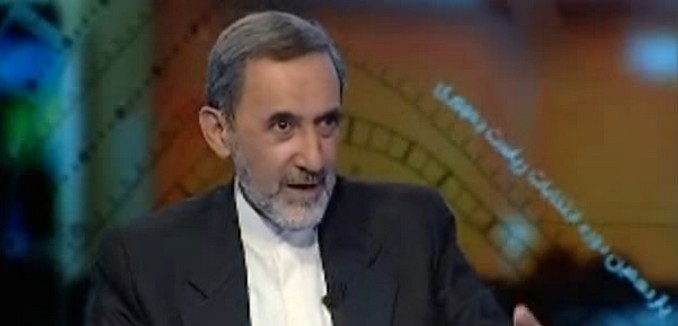An advisor to Iranian Supreme Leader Ayatollah Ali Khamenei said that the removal of Syrian dictator Bashar al-Assad was a “red line” that Iran would not cross, Reuters reported on Sunday.
“Bashar al-Assad is the Islamic Republic of Iran’s red line because he was elected president by the Syrian people,” said Ali Akbar Velayati, the top foreign policy advisor to Supreme Leader Ayatollah Ali Khamenei.
“The Syrian people must decide their own fate, and nobody outside Syria’s borders can choose for the Syrian people,” he added.
Various analysts have cited Iran’s backing of Assad, and the Syrian dictator’s tacit support of ISIS, as some of the main factors behind the ascendance of the terror group. Assad’s failure to step down from power is likely to further entrench ISIS and exacerbate sectarian violence in Syria and the region.
Last week, while evaluating U.S. interests and strategy in Syria, Tony Badran of the Foundation for Defense of Democracies observed that ISIS is “allied militarily and economically with Assad against other rebel groups.”
This past June, the Obama administration accused the Syrian regime of striking anti-Assad rebels but leaving ISIS alone while it was advancing on the northern Syrian city of Aleppo. That same month, Elliott Abrams, a former deputy national security adviser and senior fellow at the Council on Foreign Relations, called Assad “a recruiting device for ISIS and a manufacturer of jihadis,” and added, “As long as Assad is dropping chlorine bombs, killing women and children, and destroying Sunni communities in Syria, ISIS cannot be defeated.”
In December, U.S. Secretary of State John Kerry remarked that, “while Assad claims to be the last line of defense against a terrorist takeover in Syria, the truth is his relationship to Daesh has been symbiotic. It was Assad’s ruthless reign that fueled Daesh’s rise and enabled terrorists to portray themselves as the only alternative Syrians had to their dictator.”
There is also evidence that Iran has supported ISIS directly for some time.
Last month, Reuel Marc Gerecht and Ray Takeyh wrote in Foreign Affairs that Iran has not attempted to roll back ISIS’s territorial gains, and observed that sectarian violence in Syria and Iraq allowed Tehran to achieve “more influence than at any time since the 1979 revolution.” By being seen as an indispensable partner in the fight against terrorism, they argued, Iran’s “cynical strategy…will likely do just enough to make sure the Sunnis don’t conquer the Shia portions of Iraq and Assad’s enclave in Syria, but no more. Meanwhile, in ISIS’ wake, Tehran will strengthen its own radical Shia militias.”
In May, former U.S. military intelligence officer Michael Pregent explained that Iran and its allied militias did not extend themselves to fight ISIS, and concluded that “Iran needs the threat of ISIS and Sunni jihadist groups to stay in Syria and Iraq in order to become further entrenched in Damascus and Baghdad.”
Last year, reports surfaced that Iranian agents were arming ISIS in exchange for oil. This came two years after the U.S. Treasury Department exposed Iranian funding of al-Qaeda in Iraq (AQI), the terrorist organization that later evolved into ISIS.
In Iran Is More Deeply Tied To ISIS Than You Think, which was published in the December 2015 issue of The Tower Magazine, Benjamin Decker detailed the heavy Iranian financial and material support that fueled the rise of AQI.
Abu Musab al-Zarqawi and the rise of al-Qaeda in Iraq (AQI), the predecessor to the Islamic State, has been well documented; comparably little attention has been given to the group’s global reach. While the Islamic State was born out of Osama Bin Laden’s global jihad against the West, many overlook the importance of another player in the equation – Iran.
This may seem surprising given that Iran, the stalwart of the Shi’a Crescent, is currently embroiled in a regional war against the Islamic State in both Syria and Iraq. However, Iran’s Ministry of Intelligence and Security, described as one of the “largest and most dynamic intelligence agencies in the Middle East” by the Pentagon’s Irregular Warfare Support Program, has, over the past 20 years, provided financial, material, technological, and other support services to AQI. The man responsible for fostering this unexpected relationship was Imad Mughniyeh. While his name may not carry the same perceived significance as Osama Bin Laden, Mughniyeh commanded a vast international terror network that included Hezbollah, al-Qaeda, Hamas, and a myriad of others, spanning over five continents.
In early 2014, Iranian chief nuclear negotiator and foreign minister Mohammad Javid Zarif paid tribute to Mughniyeh, who was responsible for the deaths of more Americans than any other individual before 9/11, during a visit to Beirut.
[Photo: Manuchehr lenziran / YouTube ]




